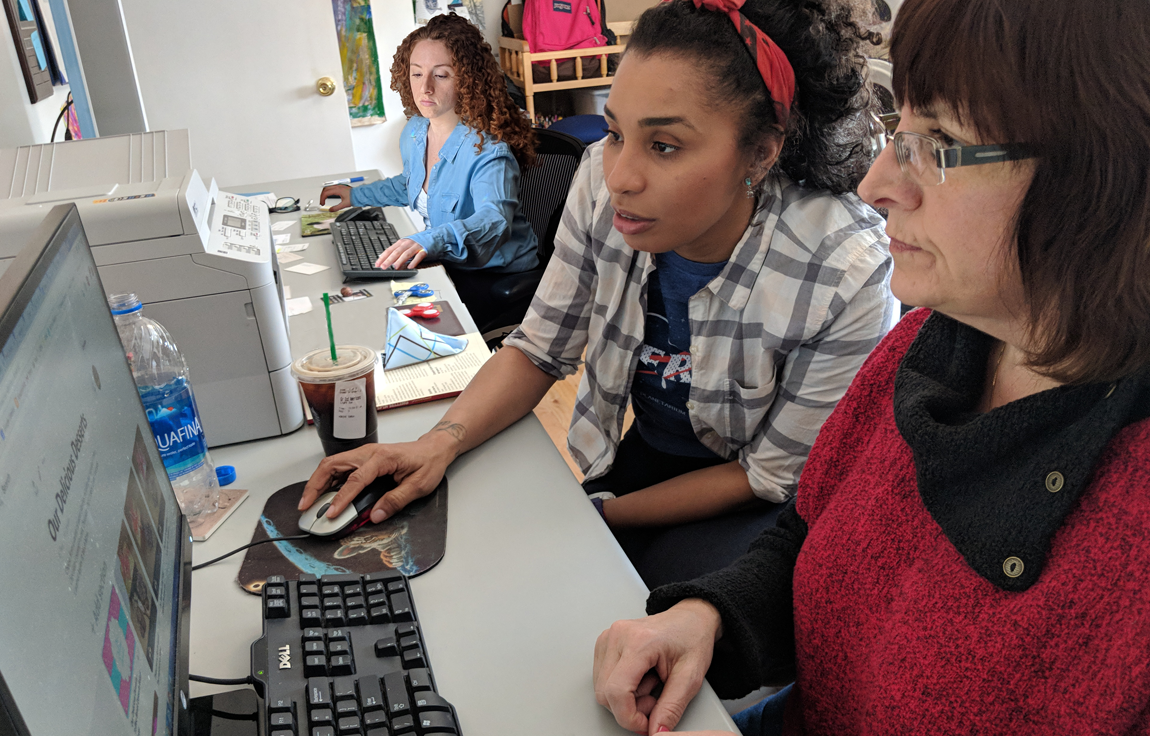Most of us have been on a “team” our entire lives: Family. Family is our first introduction of being part of a group that works together to create balance, harmony, experience love and fun in an cohesive system. As we move into school years, collaboration begins in kindergarten when we were asked to work with partners and then in middle school as they began grading us on our ability to be a “collaborative worker.” Teams are also chosen for games during P.E. class and then during our extracurricular activities when we learned how to play basketball, soccer, baseball, and so on. Teams typically have one or two leaders and then a support system that works together with the same goal in mind.
As Phil Jackson stated, “The strength of the team is each individual member. The strength of each member is the team.”
Ruben Digital operates on the principle that we work as a team to produce high quality work, develop creative solutions and share the workload among the group. Working with employees with such diverse, creative minds and perspectives is a tremendous gift. We discuss the pros and cons of ideas and point out things that someone else didn’t see on their own; naturally ending the conversation with a winning solution. Moreover, our team collaborates to determine the the best outcome by putting our minds together and helping each other in the process. Respect is a huge component of teamwork. It’s vital to listen to each other’s thoughts and respect them, even when you don’t agree. If you act closed off and unwilling to listen to other’s ideas, this hinders the team’s ability to collaborate in a safe space – thus your work will suffer because of it. Read this article for classy ways to handle when a coworker has an idea that you don’t like or disagree with.
Data from a study about the way emotional intelligence relates to teamwork shows that well-planned workplace teams are more productive. Google spent 2 years studying 180 teams, conducted 200-plus interviews, and analyzed over 250 different team attributes in their quest to design a dream-team algorithm. Google execs, like other organizations, believed that building the best teams possible meant assembling the best possible people. Project Aristotle surprisingly resulted in the simple fact that this was not true. Frustrated, Google began looking in another direction at intangibles such as traditions, behavioral standards, and unspoken customs that govern how teams function when their collective intelligence of the group comes together and unleashes their profound influence as one.
After looking at collective intelligence through another study, Google identified five key characteristics which set successful teams apart from others:
- Psychological safety: Team members feel safe to take risks and be vulnerable without feeling insecure or embarrassed
- Dependability: Team members are held accountable for high quality work on time
- Structure & clarity: Team plans, goals and roles are clear
- Meaning of work: The work is personally important for each of us.
- Impact of work: Team members believe that their work matters and creates change.
Engineering the perfect team is highly subjective; however, building a collaborative dream team by implementing these five characteristics helps us grow at Ruben Digital – and it will help your company too. Simon Sinek said, “A team is not a group of people who work together. A team is a group of people who trust each other.” Do you have our business card? See the words: Design. Create. Evolve. Together. If you don’t have our card yet, let’s connect on social!



